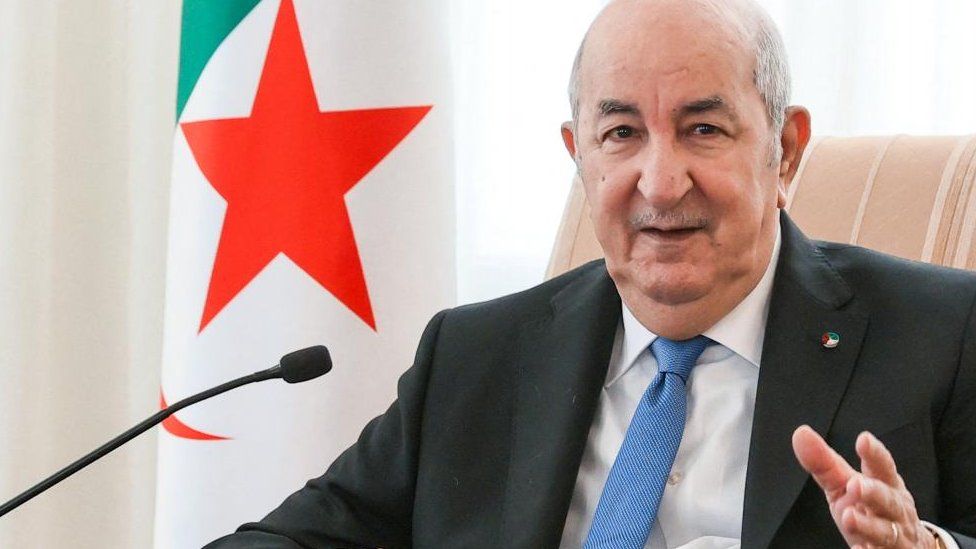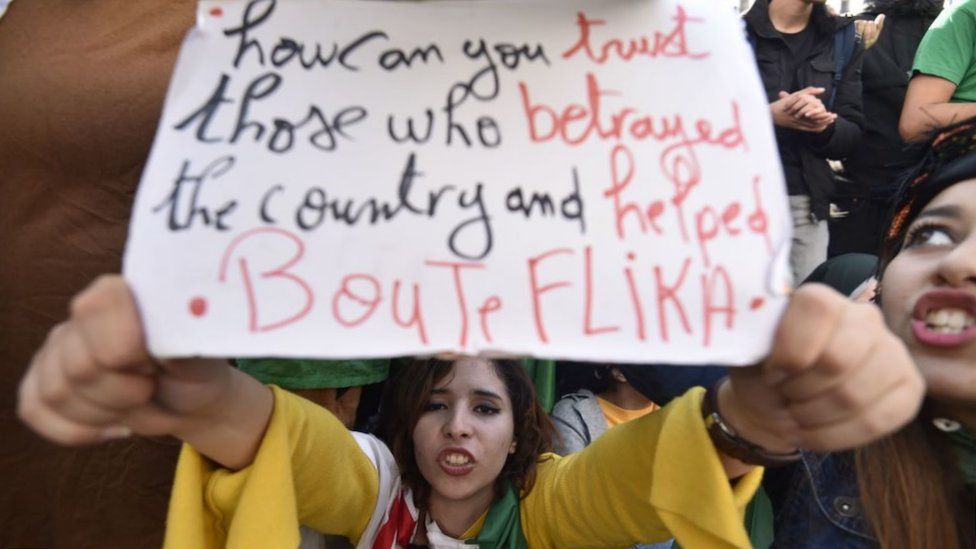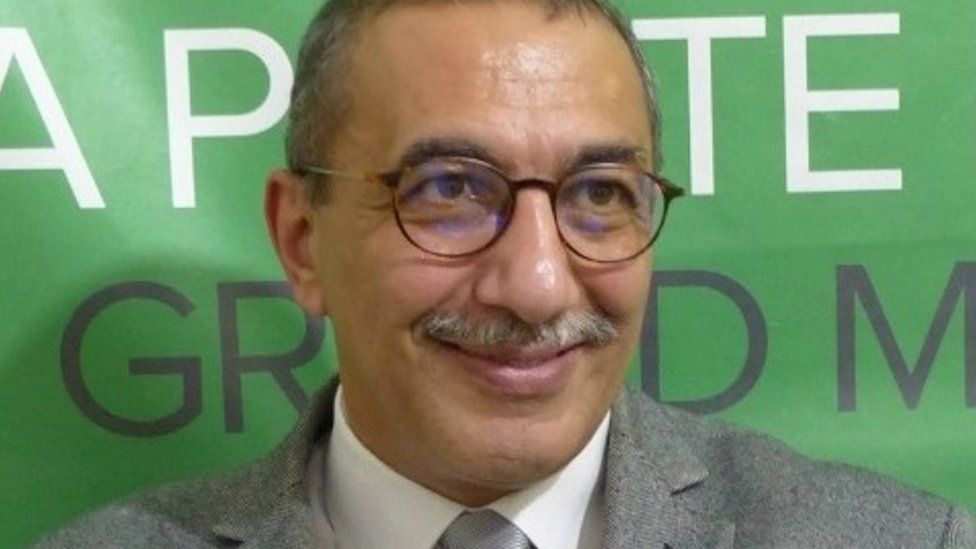In our collection of letters from African journalists, Magdi Abdelhadi examines what the imprisonment of a well-known journalist says about the true nature of power in Algeria.
Ihsane el-Kadi, a seasoned journalist from Algeria, was picked up from his home on Christmas Eve close to midnight by plainclothes police officers, who then took him to the political police's headquarters in the capital city of Algiers.
Independent journalists and human rights advocates in authoritarian countries all over the world can relate hauntingly to the details of his arrest as told by his daughter.
On December 24, Tin-Hinane el-Kadi told the BBC's Focus on Africa radio program that it all began with a phone call around midnight and was shortly followed by a knock at the door.
She claimed that the six police officers were not subject to an arrest warrant and were not charged.
He was taken to see the closing of the offices of his media company while restrained in handcuffs and loaded into a police vehicle. The facility was sealed, the employees were sent home, and the equipment was seized.

About ten years ago, Mr. El-Kadi founded Radio M and Maghreb Emergent. They are recognized as being among the nation's rapidly dwindling independent media organizations. .
A investigating magistrate ordered his "preventative detention" six days after he showed up before them.
The date of the session was changed without their knowledge, so they were unable to submit their protests against his detention and the closure of his media outlet.
The allegations against him are typical of a repressive state: undermining national unity and stability, disseminating false information, and receiving funds without authorization.
International rights organizations have called for Mr. El-Kadi's immediate release and the restoration of his media company and have criticized the arrest of Mr. El-Kadi as a flagrant violation of his human rights.
After being denied the opportunity to question the investigating judge about the circumstances surrounding his arrest, his attorneys denounced the action as a flagrant violation of the Algerian constitution and a denial of his fundamental right to a fair trial.
Mr. El-Kadi was not the first time he had to deal with the full weight of the Algerian state.
However, the immediate cause of this arrest appears to have been an opinion piece he had written and posted to his website, Maghreb Emergent, in which he opined that the 77-year-old president Abdelmadjid Tebboune might want another term in office and discussed whether the military would support that.
The president and the military were undoubtedly outraged by that.
Since gaining independence in 1962, all observers of Algeria concur that the nation has never been a democracy.
In Algeria, elections serve the sole purpose of giving the person chosen by the uniformed men behind closed doors a veneer of democratic legitimacy. .
When Algerians took to the streets in 2019, they were specifically seeking to change that. .

When it appeared that former president Abdelaziz Bouteflika, who was wheelchair-bound and gravely ill, would seek reelection for a fifth term after serving for 20 years in office, protests broke out.
Bouteflika was thwarted by the protest movement that became known as Hirak; he was compelled to resign and has since passed away. .
A few people who were near him were tried. But that was the last word.
The removal of the state's head was only one of the many things the Hirak desired. They did not desire yet another carefully orchestrated election and window dressing.
They desired a new political system with full democratic rights and the application of the rule of law, both in the constitution and in everyday life.
They understood that in order to accomplish that, they would have to dismantle what the Algerians have come to refer to as "le Pouvoir" – the intricate web of connections between the security services and the financial elite, with the army at its center. Since independence, the system has been in place.
The Hirak essentially died out due to a lack of organized leadership, the Covid-19 pandemic, the escalating repression, and other factors. And the previous order had firmly regained control.
What transpired in Algeria was a different interpretation of what transpired in other North African nations like Tunisia, Egypt, and Libya.
After the initial euphoria of what is now known as the Arab Spring, which saw the heads of state in the three nations overthrown in 2011, there was no transition to full democracy; instead, Libya remains mired in chaos, Tunisia has regressed after getting off to a rocky start, and an army general is back in charge in Egypt.
The old order has persisted, and the revolutionaries either went into exile, became apathetic, or went into quiescence. .
Or, as happened to Mr. El-Kadi, being detained in an institution.
The journalist had posted a picture of a sizable crowd outside his office during the Hirak protests in 2019 on his Twitter feed.
He added, "I wish everyone... to experience this cosmic moment once in their life, when the revolution of their dream... passes below their office window," below. ".
It was a very fleeting cosmic moment, which was unfortunate for Mr. El-Kadi and all those who hoped for a free press and the rule of law in Algeria and the rest of North Africa.
Follow us on social media at @BBCAfrica on Twitter, BBC Africa on Facebook, or @BBCAFRICA on Instagram.







